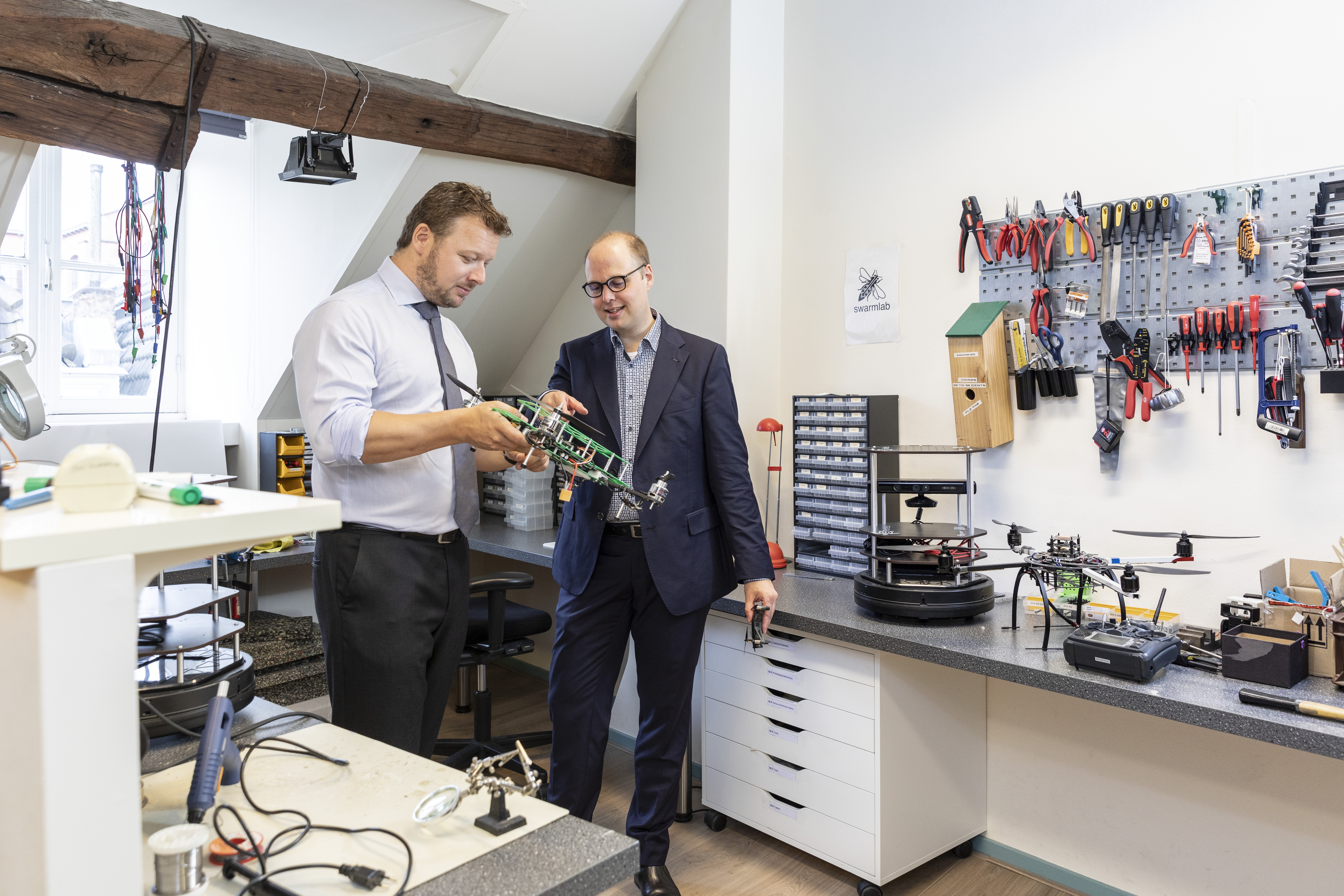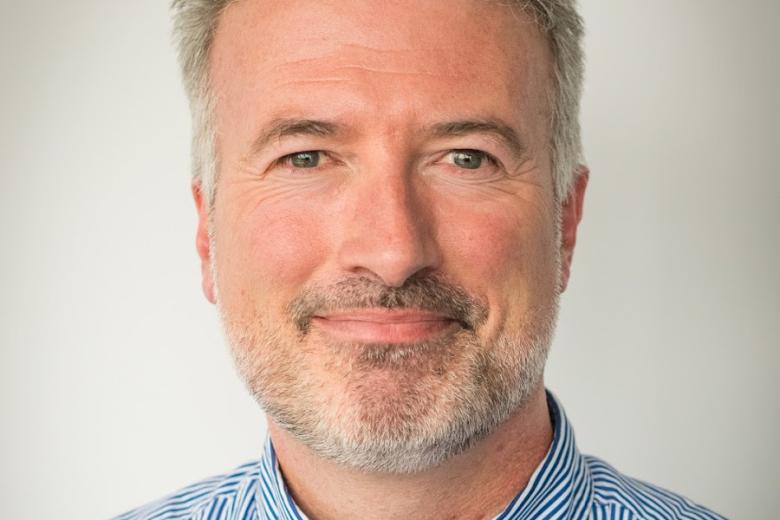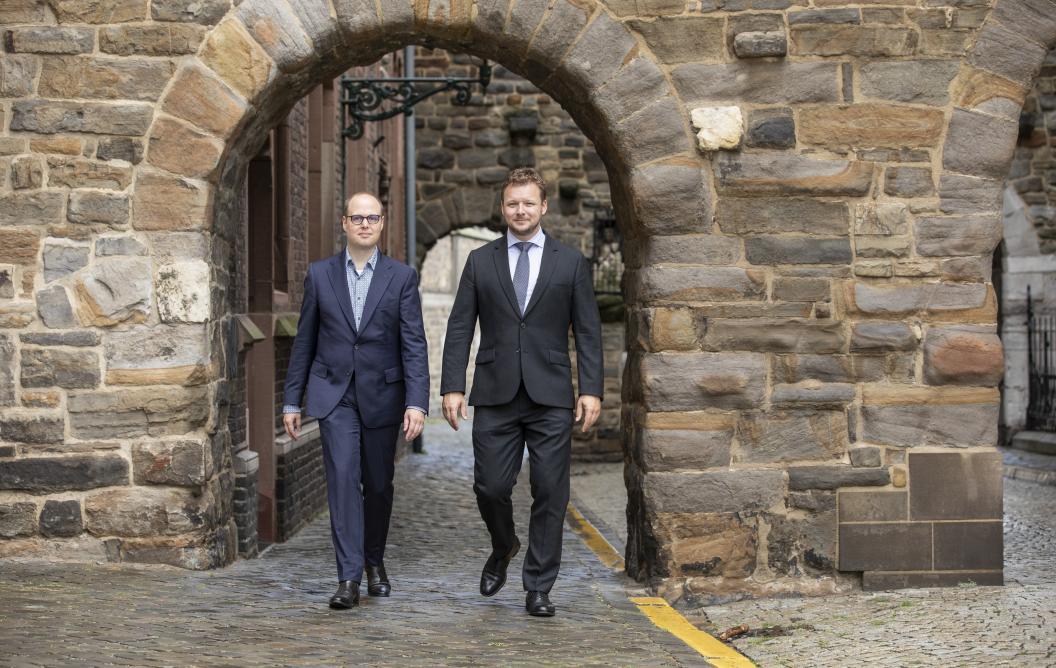UM researchers lead European project to tackle challenges linked to technical innovations
Will robots take our jobs? Are we teaching people the right skills for tomorrow’s labour market? How will AI impact inequality? Is a universal basic income a real possibility or a utopian dream?
These are just a few of the big questions the H2020-funded project TECHNEQUALITY will attempt to answer. Led by Mark Levels with the help of Raymond Montizaan and Didier Fouarge, TECHNEQUALITY’s findings are expected to inform policy-makers working to support their populations through technological transformation. We sat down with Mark to find out more about this fascinating project and how it came to be.
HOW IT ALL BEGAN
To understand the story of TECHNEQUALITY, we must look back at the journey of Mark Levels, the project’s founder and coordinator. Mark received his PhD from Radboud University Nijmegen before joining Maastricht University’s Research Centre for Education and the Labor Market (ROA) where he was eventually appointed professor. As a sociologist, Mark was interested in the relationship between education and skill mismatches on the labour market. Eventually, influenced in part by literature such as ‘The Second Machine Age’ by Erik Brynjolfsson and Andrew McAfee, Mark became increasingly interested in the impact AI and robotisation would have on skill mismatches, and thus in work, education and inequality: the seed for the TECHNEQUALITY project was planted.

Wanting to go further with his research on AI and robotisation, Mark first applied for a Vidi grant, which is part of the Innovational Research Incentives Scheme, a subsidised programme for talented, creative researchers who conduct innovative research. After months of hard work preparing his proposal and despite good reviews, the outcome was not what Mark had hoped. Nonetheless, he never lost faith in his research idea: ‘I was confident that even though I did not receive a Vidi grant, my project was relevant and that the proposed methods were solid.’ An opportunity to give his research idea a second chance came sooner than expected in the shape of a Horizon 2020 (H2020) call for proposals on the topic of AI and robotisation. The call text invited research that strongly resembled the research plans Mark had laid out in his Vidi proposal; however, the budget of close to 3 million euros opened up the opportunity for realising even more ambitious research plans, such as tackling many of the major issues related to the automation of work.
At ROA, research proposals are only pursued after a sound review by ROA peers. Before applying for this H2020 grant, Mark presented the research idea to the ROA joint project leaders meeting. They were on board. With the project approved, it was time to get to work. Mark and his colleagues first reached out to their networks, putting together a consortium of eight leading universities to join forces with ROA on the project. TECHNEQUALITY was officially born. Mark’s colleague Dr Raymond Montizaan joined the team; together they created the proposal for TECHNEQUALITY’s research agenda and coordinated the consortium partners. Drafting the proposal turned out to be quite the challenge. Although colleagues stepped in to take over some of the ongoing research projects at ROA, their normal work would keep Mark and Raymond occupied during office hours. To finish the proposal in time, Mark and Raymond worked around the clock, Mark working in the wee hours of the morning and Raymond working late into the night. The rest is history.
Nine months into the project, TECHNEQUALITY is running smoothly with the first results expected before the end of the year. When asked about his experience, Mark explains ‘It has been fascinating and exciting to see the project take on a whole new dimension. At the same time, as the project has grown bigger, I have also had to learn to let go of some control.’ Mark also highlights the multi-disciplinary nature of the project, explaining that the team is made up of researchers from a broad range of disciplines including sociology, economics and engineering. ‘We may work with similar methods, but we approach problems from different angles. The questions I ask myself as a sociologist may not be the same as those of an economist. The result is that we are attacking problems from all angles and getting results that are more comprehensive. This is extremely valuable.’
WHAT IS TECHNEQUALITY?
Funded through the European Commission’s Horizon 2020 framework, TECHNEQUALITY brings together a multidisciplinary group of leading scholars from Maastricht University, Oxford Martin School, Tilburg University, Stockholm University, WZB Berlin Social Science Centre, the European University Institute, Tallinn University and Cambridge Econometrics. With a budget of close to 3 million euros, the project will stretch over a three-year period.
Recent technological innovations may fundamentally change the size and nature of social inequalities. Success in labour markets and society will likely be driven by other skills than in the past, and traditional predictors of social mobility (e.g. class, credentials) are likely to be affected by these technological innovations. Current literature focuses primarily on whether automation will create or destruct jobs. Via its six research packages, TECHNEQUALITY will study this question while also focussing on the broader societal impact of technological developments. The scientific research is fundamental, but the project’s findings are expected to inform policy-makers at a local, national and international level across the EU, working to support their populations through technological transformation.
With the first results expected before the end of the year, all of the project’s finding will be published and disseminated online via their website (new and improved website coming soon). So, stay tuned!
- Read more news from the School of Business and Economics
Also read
-
Above-average numbers of Limburgers are overweight.
It is a problem that will not disappear with a one-size-fits-all solution, says NUTRIM professor Gijs Goossens in L1 interview.
-
Evidence-based health tips for students
In the upcoming months, the Faculty of Health, Medicine and Life Sciences will share tips on Instagram on how to live a healthier life. Not just a random collection, but tips based on actual research happening at our faculty. The brains behind this idea are Lieve Vonken and Gido Metz, PhD candidates...

-
Empowering Smallholder Farmers in the Data Economy: Unlocking Opportunities and Overcoming Obstacles
Frederik Claasen, the head of policy at our partner organisation Solidaridad Network on the opportunities and obstacles facing smallholder farmers in their data ecosystems.

